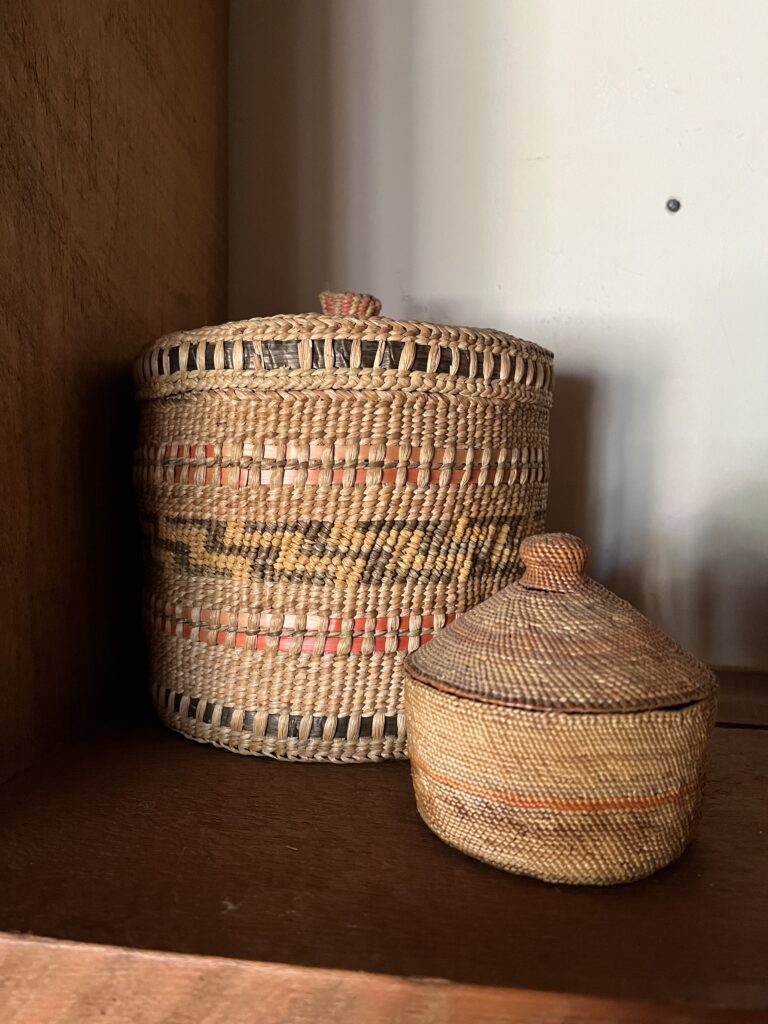Eight days before the election and my inbox is overflowing with hysteria. “We’re heartbroken,” “It’s Over” “Have you forgotten us?” “Horrible news” “It’s do or die” “We need you, Lucy, now more than ever,” (that’s the one that might get me, if I weren’t so sick of it all.) I’ve left off the exclamation points but there are way too many. It reminds me of the fairy tale of Chicken Little who is hit on the head by an acorn and thinks the sky is falling. He, or she, runs to tell the King collecting many other feathered friends along the way until there is a flapping, cackling chorus of “The sky is falling” (add exclamation points). Of course, a fox offers to show them the way and that’s the end of that.
By now I am deleting these emails as fast as they come in, which only seems to encourage them. I resent the unsolicited barrage because I am being hounded to give money, but that’s not all. It’s the desperation, the urgency, the panic, the frantic cries and tearing out the hair — all these emotions that I already have plenty of, given the state of the world.
I don’t deny that the sky may actually be falling, but the hysteria is driving me crazy. I understand that we need to be alert and do what we can, but we need to leave time to relax, breath, and think about the next step. I’m reminded of a project I’m working on and an insight about myself that I think applies to a lot of us White mainstream Americans. As soon as a problem is identified, a dilemma revealed we want to fix it, asap, do whatever we can to put the sky back where it belongs. We send money, make phone calls, feed a family, anything as long as we’re fixing it. The sooner we fix it, the sooner we can forget about it and move on to the next thing. This is great if a house is on fire, a child is crying, a dog is lost, the rent is due, and a million other things. But there are things that require time and patience, things that shouldn’t get a band aid slapped on and forgotten.
I am working with a group of Native Americans who are being consulted on the repatriation of cultural items to their Tribes of origin. These items are from different tribes, some known, some not. They were made for different purposes – domestic use, ceremonial use, tourist trade, or just the joy of creating something unique or beautiful. Some are well preserved, some are damaged. We were discussing how to move the project forward. My assumption was “the sooner the better.” These things have been separated from their homelands for a long time and need to be returned now. The owner of the items, White like me, was ready, just waiting for the name and address to put on the box.

The Natives, however, had a completely different agenda and timetable. These items had been elsewhere for a long time. There was no reason to hurry the decision. Besides there were very important discussions to have before taking any action. Who, how, what, why, when were all critical questions to ponder, even if there was no answer. Was this bowl or basket or weaving made by a man or a woman, an elder or a younger person? Why were they making it, what were they thinking about? What kind of materials were used and where did those materials come from? Who gathered them and at what time of year? How was the item used, by whom, with what intention? How did it change hands and why? Was it cared for, or abused? So many questions. So few answers, but that was not the point. The point was to spend time with these objects, learn from them, appreciate them, honor them for their age, their usefulness, their beauty. I was bemoaning the moth damage to a beautiful Navajo rug. A Native woman pointed out that we were looking at the rug on its journey from beginning to end. This was just a stage in its life. The objects have a life span, my colleagues said, and we are assisting in the next phase. In time it would become clear what step to take, if we were patient and listened to the stories from the objects themselves. In the meantime, the Native consultants were content to have them stay where they were.
This made perfect sense to me and I was grateful for the insight. There are some topics that need time, not a quick fix. I also realized that some of these topics – like the disposition of stolen cultural items — may be difficult or confusing ones, may involve painful history and injustices and may give rise to discomfort and guilt. Perhaps this is one reason that many of us leap into action at the first sign of one of these challenging topics. If we do something, anything, we can tell ourselves that we addressed that problem and not have to ponder all the unanswerable questions it holds. But in that rush to fix, we are missing so much: the richness, the learning, the wisdom of those who are the experts, and ultimately a thoughtful, lasting decision. Surely those things are worth waiting for… even if the sky is falling.
….speaking of which, while writing this the following email came in:
“Hard email to write – we’re sobbing so hard”
Oops, here’s another:
“Is there ANYTHING we can say, Lucy?”
Update: 11/6/2022 Just received this subject line from candidate in Colorado:
“The sky isn’t falling — yet — but ….”



Loved this one, Lucy!
Hugs from Marci
hugs back, thanks, Marci.
Dear Lucy, Thanks for this drop of calm wisdom in the ocean of hysteria.
You inspired me to take a deep breath and go outside to watch the clouds scoot by.
Thanks, Anne. I’m so glad that I helped get you outdoors to breathe deep and look up at the clouds…. and away from the screen.
Thank You Lucy!! The visual of the baskets and their story is bringing a much needed reality check to me. You’re the BEST!
Thanks, Dotty. It’s interesting how differently I looked at those baskets from my grandmother after working on the disposition of someone else’s cultural items, and hearing the wisdom of that group of Native Americans. Will they stay in my lineage? Will they travel home… and where is home?
yup. 8 days,
Eight Days
Let me vanish
The usual jeremiad
Trumpeting woes about
The psyche of the other party
I love the fluorescent shimmer
How the Brazillian’s delivered!
Dancing the streets in harmony
Fountains spew victory’s colors
They said no to Bolsonaro
They said yes to
Luiz Inácio Lula da Silva
To save Brazil’s democracy
Eight days of wondering
What will be published
The ninth day
In ink, in ballots, in America
Powerful poetry. Thanks, Susan.
Great observations Lucy.
Thanks, Judith. Hope fall is treating you well.
Lucy,
Thanks for reminding us of the salve of immediate gratification we so often cling too. It reminds me of the same dichotomy I observed at home growing up. My mother would sometimes say, “I want to eat and I want to eat now!” Yet there were also many times when she would also say after dinner, “Desert will be later”, and most times, “later” never came, at least not the same day.
We do often want results now yet the right results don’t always come right away.
You remind us to listen for and to hear the stories that go beyond the immediate salve that soothes our day to day sense of order.
Dessert not desert. Thanks spellcheck!
…eating dessert in the desert… not ice cream, I hope.
Love your story and the connection you made to my message! thanks so much.
Thanks Lucy for this story of perspective and the relativity of time. I am grateful for your sense that seeds do not grow into flowers overnight or harvest immediately and that seeds need to be carefully tended for future plantings too. Hope you and R are well.
Lovely, Tom. Many thanks for writing. We are well in our tiny corner of the planet. Hope you and yours are too!